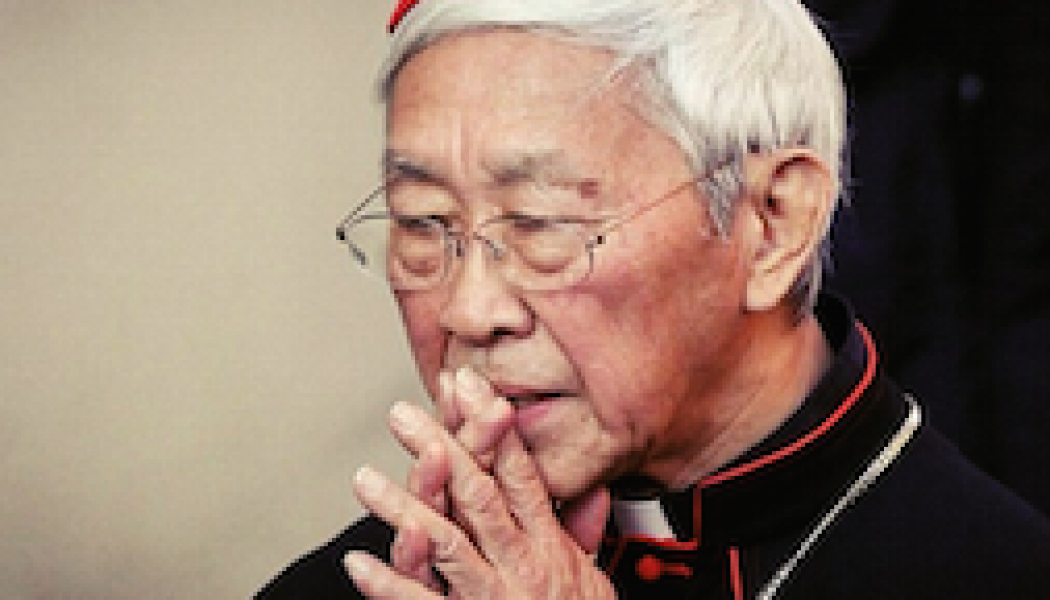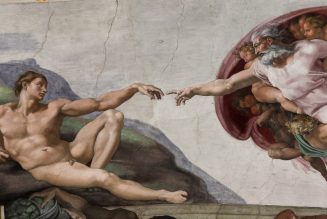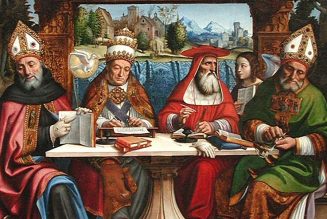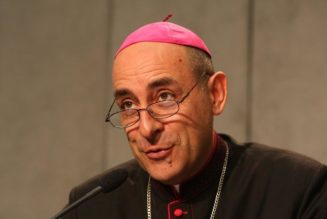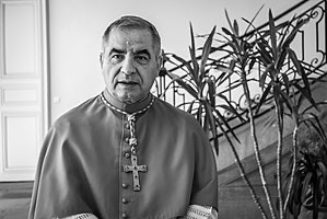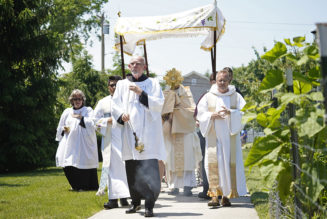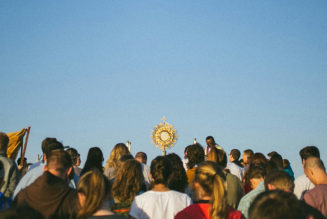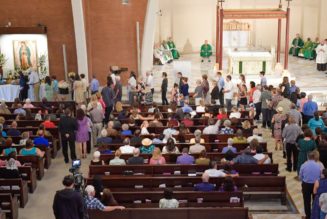
> Italiano
> English
> Español
> Français
> All the articles of Settimo Cielo in English
*
In the beginning of the year speech to the diplomatic corps, Pope Francis found words on everything, from Burkina Faso to northern Macedonia. But not on China.
This silence was not a surprise, given the fear of the Vatican authorities that any word of theirs in this regard could only irritate the Asian giant, already rather hostile toward “foreign” religions, including the Catholic Christian.
Just before, however, the pope gave his speech, a magazine that reflects his thoughts very closely and is printed after review by him and by the secretariat of state, “La Civiltà Cattolica” directed by the Jesuit Antonio Spadaro, had come out with a thirteen-page article that spoke of China in spades, but to attack heavily, complete with first and last name, Cardinal Joseph Zen Zekiun, 88, bishop emeritus of Hong Kong, who for years has raised his voice against what he judges as ruinous surrenders by the Holy See to Chinese supremacy.
Properly speaking, the article in “La Civiltà Cattolica,” under the byline of the Jesuit Stephan Rothlin, who directs the Ricci Institute of Macao, was in exaltation of the figure of another Chinese bishop, the Jesuit Aloysius Jin Luxian, bishop of Shanghai from 1985 until his death in 2013, a figure certainly of highest caliber, tempered by 27 years in prison and who then expended himself, in calculated submission to the Chinese authorities, in reconciling what to Rome appeared until a few years ago irreconcilable, the Church’s freedom and the persecutory omnipotence of the regime.
But precisely because Jin’s activity was described, not incorrectly, as a path preparatory to the provisional and secret agreement signed by the Vatican and the Chinese government on September 22, 2018, there was a strong temptation to turn it against the most authoritative and indomitable critic of this agreement, Cardinal Zen.
Who, right on the eve of Pope Francis’s speech to the diplomatic corps, had made public his letter sent to all the cardinals last September 27, to beg them not to “passively witness the murder of the Church in China by those who should protect and defend her from her enemies.”
The letter is accompanied by an attachment with the “Dubia” delivered by Zen himself to the pope last July, concerning the “pastoral guidelines” published in early summer by the Holy See on the constraints exerted by the Chinese authorities on bishops, priests, and faithful.
Both the letter and the “Dubia” can be read in their entirety in English on LifeSite News:
> Cdl Zen urges cardinals to stop the “murder of the Church in China”
So then, how does “La Civiltà Cattolica” orchestrate its attack on Cardinal Zen?
To illustrate the contrast between the two men and the two Churches they personify, the “official” and the “underground,” the magazine cites an interview given in 2010 by Bishop Jin to Anthony E. Clark, the scholar who is editing the publication of his memoirs in English, published by Hong Kong University Press.
Says Jin, who was made a bishop in 1985 at the sole behest of the Chinese government and without the approval of Rome, which was given to him only twenty years later:
“Few people really understand that in the official community we suffer more because we are under bright light, subjected to constant government control. Some believe that the underground community is the true Catholic community in China, and that its members are the only ones truly faithful to the pope. Moreover, they believe they are more obedient to the pope than the official community. This is completely false. Today the government knows where we are at all times. We live under enormous pressure to agree to the party’s demands.”
On the contrary – says Jin – it is the underground communities that have the easier life:
“The underground community is free to move as it pleases. It is known that, according to canon law, the priest must remain under the jurisdiction of the diocesan ordinary, but the clandestine clergy moves all over China as it pleases, with great freedom; is this obeying the law of the Church? And when the pope [Benedict XVI] wrote the letter to China [in 2007], it was the official community that responded with a spirit of obedience. The underground one has almost completely ignored it. Is this docility to the pope? Furthermore, when the pope called upon the two Catholic communities in China to patch up their differences and work as one Church, Cardinal Zen in Hong Kong encouraged the underground Church to remain firm in its opposition to the official community. Is this what the pope wants?”
At the end of the article, “La Civiltà Cattolica” reports this other observation by Jin in his 2010 interview, according to which the real clash in China was personified on one side by Cardinal Zen and on the other by the layman Liu Bainian, historical president of the Chinese Patriotic Catholic Association, the communist party’s instrument of control over the Church, which all bishops and priests are pushed into joining in spite of the fact that its principles are defined as “incompatible” with the Catholic faith in the letter of Benedict XVI cited above:
“Currently in the Chinese Church these two persons are an obstacle, and until they are gone it will remain impossible to cross the border that divides the underground community from the official one. As long as Liu wants the local Church to remain completely independent, there will be Chinese Catholics who will remain clandestine; and as long as Cardinal Zen tells the underground one to remain separate, there will be no unity.”
Jin’s interview is from 2010 and Liu Bainian is today only the “honorary” president of the Patriotic Association. But the policy he personifies is in full force, with further measures heavily repressive of religious freedom that will go into effect on February 1.
As for Cardinal Zen, he too is implacable in continuing his battle. But if he were to cease being “an obstacle,” there would no longer be raised any authoritative voice in the Chinese Church in opposition to the juggernaut of those who do not want not its blessed “unity,” but its “murder.”
*
Regarding Cardinal Zen, the rereading of his latest interview could be informative:
> Church on the Brink of Schism in China. The Alarm of Cardinal Zen
And on the political role of Bishop Jin Luxian back in the 1980s:
> The First Contacts Between the Vatican and Beijing Began 32 Years Ago. Here’s How
